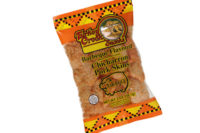Snack Healthy
Taste remains king as manufacturers up the health of traditional snacks
Healthy processed snack foods are no longer a contradiction in terms as manufacturers introduce a variety of new products to meet consumer demand for nutritionally beneficial noshes. Thanks to recent research touting the health advantages of whole grains and nuts, snack food manufacturers are enthusiastic about including these ingredients.
“A couple of years ago companies were asking for confection ideas for nuts. Now companies are asking for nuts in healthy applications,” says Jennifer Hawton, manager of marketing communications for the Seattle-based Hazelnut Council.
Conversely, because of new labeling requirements for foods containing trans fats (to be implemented by Jan. 1, 2006), manufacturers are promoting trans fat-free nibbles.
Although natural food companies may be leaders, the wholesome snack movement is gaining interest from a variety of companies. The interest is here because the new dietary guidelines will bring a “new light to whole grains,” says Ann Przybyla Wilkes, vice-president of communications for the Snack Food Association based in Alexandria, Va.
Bob Gould is betting whole grains will appeal to pretzel lovers. “We’re talking about it as a sophisticated flavor combination,” says Gould, marketing manager of Snyder’s of Hanover Inc., in Hanover, Pa.
The company, which is known for its premium adult-oriented pretzels, recently introduced 12 Multi Grain Pretzel Sticks and Pumpernickel & Onion Sticks.
Although neither pretzel contains enough whole grains to meet the standard being developed by the Whole Grains Council, Gould thinks consumers will appreciate it as a healthy alternative to fried snacks.
Consumers always have loved the taste of nuts but were wary because of the high-fat and high-calorie content. A combination of the qualified health claim for nuts (linking nut consumption to reduced risk of heart disease) and the low-carbohydrate diet craze changed that, according to Hawton.
“People are aware that nuts are a healthy fat and increase satiety,” she says.
“I’ve seen more interest in the nut category, probably due to low-carbohydrate diet interest,” says Nick Nicolay, president of Kar’s Nuts in Madison Heights, Mich.
Kar’s, which sells nuts and nut mixes to Sam’s Club and to vending machine companies, sees demand for more unusual blends.
The company’s newest offering is a yogurt, apple and nut mix in 1.5- and 2.5-ounce packages for vending machines.
Snack crackers and chips are polishing their images as well. Being free of trans fats is a selling advantage.
“We’ve been trans-fat free since day one,” says Michelle Peterman, vice-president of marketing for Kettle Foods Inc., makers of Kettle-brand chips in Salem, Ore.
The company, founded in 1978, is a leader in the natural chip category, which is growing at 22% annually, compared with conventional chips at 1%, Peterman says.
Unlike some, Kettle Foods Inc. took a pass on low-carbohydrate snacks. “We’re looking at the longer term. We couldn’t figure out how to make a good-tasting low-carbohydrate snack product.
“What we see in the natural snack category is that people are acknowledging change, but want moderate change, not something radical,” Peterman adds.
In addition to the kettle chips using expeller-pressed safflower or sunflower oil, the company makes reduced-fat crisps and certified organic tortilla chips. Smaller sizes for the kettle chips and “Krinkle”-cut chips are being introduced.
The Hain Celestial Group launched Terra Kettle Blend Potato Chips a little more than a year ago. The chips, which include such potato varieties as white, Russet, blue and sweet potato, have 30% to 40% fewer calories than typical chips and are trans-fat free.
“We’re not marketing this as the low-fat chip. We see the snack as a low-fat, indulgent eating occasion,” says Adam Levit, vice president of marketing for Hain Celestial Group Snacks Division in Melville, N.Y..
Shunning radical diet fads, Stacy’s Pita Chip Co. also is promoting sensible snacking.
“When we started the company we didn’t buy into low-fat/no fat. We decided to go middle of the road,” says Mark Andrus, co-owner of the Randolph, Mass., business.
The baked pita chips contain no trans fat and the newest variety is multigrain. The company also has a line of Stacy’s Soy Thin Crisps.
The moderate approach is working, Andrus says. The company, which started in 1997, is in the process of moving from a 40,000-sq.-ft. space to one more than four times the size with a state-of-the-art bakery.
Companies marketing the health aspects of their products feel confident. However, there are some obstacles. Snyder’s of Hanover, for example, appeals to an adult audience with its multi-grain, honey-wheat and similar pretzels. Children, who also could benefit from more whole-grain snacks, may be a harder sell.
“Kids aren’t real fans of texture,” says Gould.
Natural chips often are segregated in supermarkets, which means manufacturers have to find new ways of bringing in consumers who may not shop the health-food aisles.
Stacy’s, for example, avoids the isolation with deli-area displays.
“We’re selling with the paté and cheese and get good exposure,” says Andrus.
However, as the bigger brands introduce their healthier chips, the division between natural and conventional may be eliminated.
Editor’s Note: Bev Bennett is a contributor to Stagnito’s New Products Magazine.


